Saturday, April 12, 2025. Annette’s Roundup for Democracy.
A Good Pesach - Passover - to everyone. Let the spirit of the festival celebrating Freedom and Inclusion bring joy to our shaken world.
A further welcome to Spring with more blooms and bounty arriving each day.
Here is a message to take in, about the holiday.
Stephen Miller's cavalier cruelty misses the whole point of Passover.

In Jewish households around the world, Families and Friends gather around the Passover Table tonight and tomorrow night.
This week, Jews around the world will retell the Passover story. Why? Because, as Exodus 22:20, Exodus 23:9, Deuteronomy 10:9, and Deuteronomy 24:17-18 all state, the memory of our people’s enslavement leads to compassion today. Here’s the version in Exodus 23:9: “You shall not oppress the stranger, because you know the heart of a stranger, because you were strangers in the land of Egypt.”
This is the root of ethical monotheism: a shared (if mythic) recognition that we, too, could just as easily be the refugee, the stranger, the “other” — and that, as a result, we have a moral imperative not to oppress the strangers in our midst.
The Torah does not say, “Now that you are free, use your dominant position to ruthlessly dominate other people — after all, they’d do the same to you.” On the contrary, with power comes the commandment to resist that urge, and act with compassion instead.
Contrast all that with this recent statement by one of our nation’s deporters-in-chief, White House Deputy Chief of Staff Stephen Miller:
It’s remarkable how many transgressions of both Jewish and American legal principles are contained in this single sentence.
First, there are the falsehoods. Whatever illegal immigration is, it’s preposterous to describe it as an “invasion.” That’s a legally loaded term, since it justifies the Trump regime’s reliance on the Alien Enemies Act of 1798. It also plays well on the Fox News rage-and-paranoia machine. But it should be obvious what an “invasion” meant in 1798: an actual armed invasion of the new nation by an enemy power, as would soon take place in the War of 1812.
By way of parallel, consider the Jewish laws of war, which carefully delineate between “elective wars” (milchamot reshut) and “mandatory wars” (milchamot mitzvah), with different rules of engagement and duties to enemies. Terms like “invasion” aren’t empty of meaning; they have legal significance and are meant to be used seriously.
This is perhaps Judaism’s most distinctive contribution to Western civilization — the notion that law is part of holiness.
Second, there’s the word “If.” The whole point of due process is to ascertain, in an orderly way, whether someone “illegally invaded our country” or not. As we have already seen, disappearing people off the street and shipping them to a prison camp in El Salvador without any due process inevitably leads to mistakes, in which at least five completely innocent people (it appears) were swept up in the dragnet.
Those people did not do anything wrong. But the only way we can know that — the only way to satisfy the conditional part of Miller’s statement — is to have some judicial process that establishes it. That process may still be flawed; it may still convict innocent people. But it is the essence of democracy as opposed to authoritarianism.
It’s also how the general imperative of “do not oppress a stranger” gets translated into practice. Jewish law does not rest on generalities; in often excruciating detail, it provides for courts, elements of criminal and civil offenses, rules of evidence, and other elements of the due process of law. The memory of Passover becomes the legislation of Shavuot.
This is perhaps Judaism’s most distinctive contribution to Western civilization — the notion that law is part of holiness. It’s not something to be cast aside or mocked. It is how we are meant to live.
Of course, the rule of law also includes immigration laws, and if people break them, they can be held accountable. But that is only true if law enforcement is itself accountable, if there are ways to ensure that innocent people are not wrongly punished; if there is, in other words, due process for everyone present in the country, including those who are here illegally.
“No person shall… be deprived of life, liberty, or property, without due process of law,” reads the Fifth Amendment. No person — not no citizen or legal resident. I think Stephen Miller knows this text. He’s just choosing to lie about it.
Finally, there’s the sneering, dismissive tone of Miller’s statement which, itself, transgresses the spirit of Passover. Retelling this same story every year, over and over again; teaching it to our children; expounding, in the traditional Haggadah anyway, on every word in the text — what is it all for? Is it to reaffirm Jewish specialness? To retraumatize us each year with tales of antisemitism and persecution? It certainly can do those things.
But in light of the commandment referenced above, the Seder’s purpose becomes clear. Because really, there are two commandments in Exodus 23:9 and similar verses: not to oppress the stranger, and to know the heart of a stranger by remembering that we, too, were once strangers in Egypt. If we do this work correctly, the Haggadah says, we feel that we ourselves are experiencing the exodus — we feel as though it’s happening to us.
And from that “knowing the heart of the stranger” springs an attitude that is totally opposed to Miller’s cavalier cruelty. Again, this doesn’t mean that we don’t enforce immigration laws. It means that we don’t paint with a broad brush and demonize people, we don’t tear families apart, we don’t delight in the suffering of others (on the contrary, we even spill wine for the deaths of our oppressors), and we don’t ignore the rule of law in the guise of enforcing it.
It is, alas, part of human nature for the strong to oppress the weak, and for groups with power to demonize out-groups. But religion and ethics exist to hold those aspects of human nature in check and cultivate the better angels of our nature. That was true at the Red Sea, it is true around the Seder table, and it ought to be true in the corridors of power as well.
Rabbi Jay Michaelson is a contributing columnist for the Forward and for Rolling Stone.
One more thing.
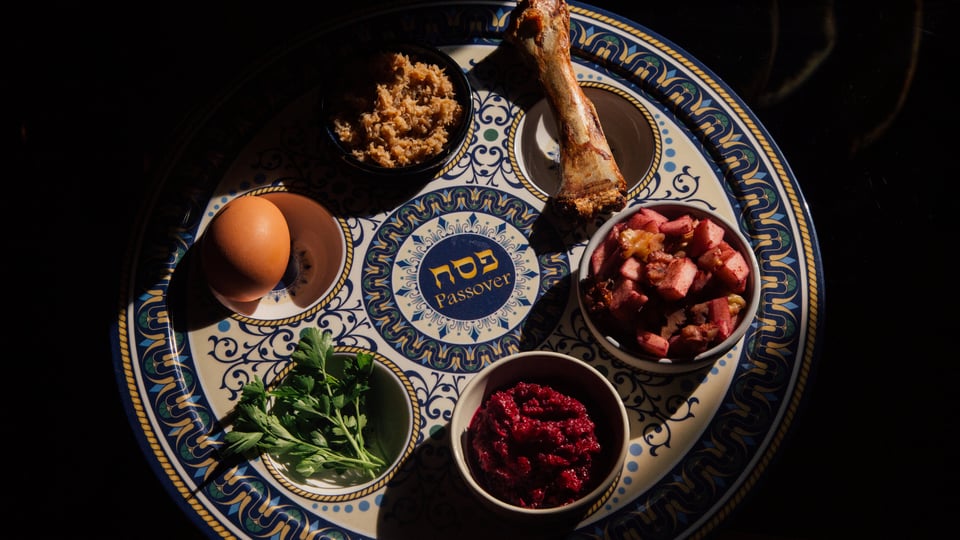
A Seder Plate containing the traditional symbolic foods connected to the ritualistic Seder has seen additions in time.
For some, this plate now includes a new tradition, an orange.
Urban legend, that many have heard, is that Susannah Heschel, professor of Jewish studies at Dartmouth College, while lecturing in Florida, was denounced by a man who said a woman belongs on the bimah as much as an orange belongs on the seder plate. Thereafter Heschel included an orange in recognition of gay and lesbian Jews, and others who are marginalized in the Jewish community.
Some also include Miriam’s Cup, filled with water, on the seder table beside the Cup of Elijah. It serves as a symbol of Miriam’s Well, which was the source of water for the Israelites in the desert.
It also draws attention to Miriam and the other women of the Exodus story, women who have sometimes been overlooked but about whom the Jewish tradition says, “If it wasn’t for the righteousness of women of that generation we would not have been redeemed from Egypt” (Babylonian Talmud)
Other conversations and rituals are sometimes adjusted too, to remember Hamas’ October 7th attack and the hostages taken, and to memorialize the Palestinians killed in Israel’s attacks on Gaza. Ukraine too is sometimes referenced, by the addition of a sunflower, the flower of that beleaguered country, placed on a Passover table.
One Passover ritual, though, never changes.
When we break and distribute the matzoh at the Seder, we recite this ancient sentence -
“All who are hungry, let them come and eat.”
This is an invitation to all to share the Seder meal and celebrate freedom. It is a reminder of the Jewish value of compassion and the obligation to provide for strangers and those who are hungry.
Stephen Miller, are you listening?
News of additional blooms of Spring, in NYC which start this weekend.
A massive tulip festival is about to bloom in NYC—and it's free to visit
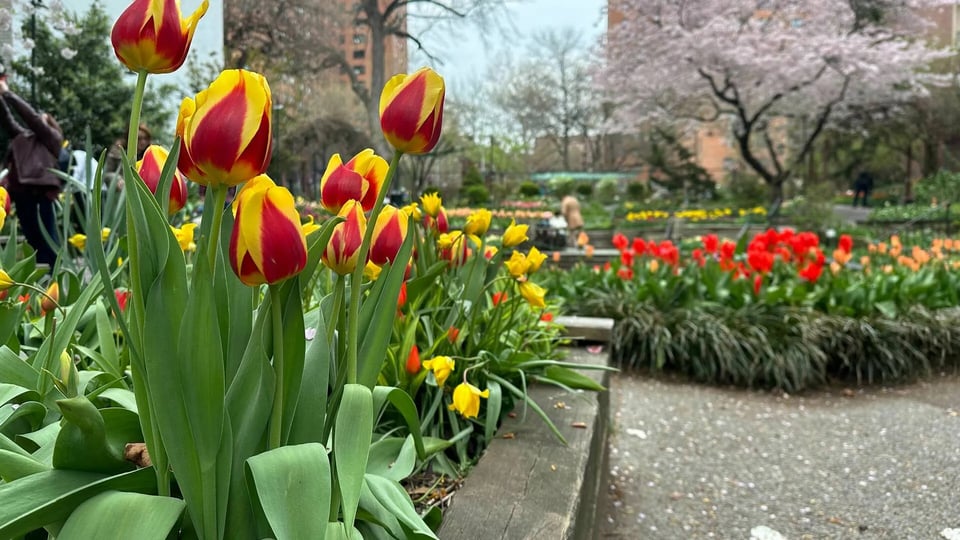
Cherry blossoms tend to steal the spotlight this time of year—and deservedly so. But another pastel flower is worthy of our attention, too: the tulip. These colorful flowers are about to make their seasonal debut, emerging from bulbs deep underground that have survived the winter freeze.
One of the best spots to see these botanical marvels is at the West Side Community Garden, a hidden oasis of springtime splendor that is home to more than 10,000 tulips. The volunteer-run garden will host its 47th annual tulip festival from April 12–April 27. Best of all, the massive festival is free and open to all.
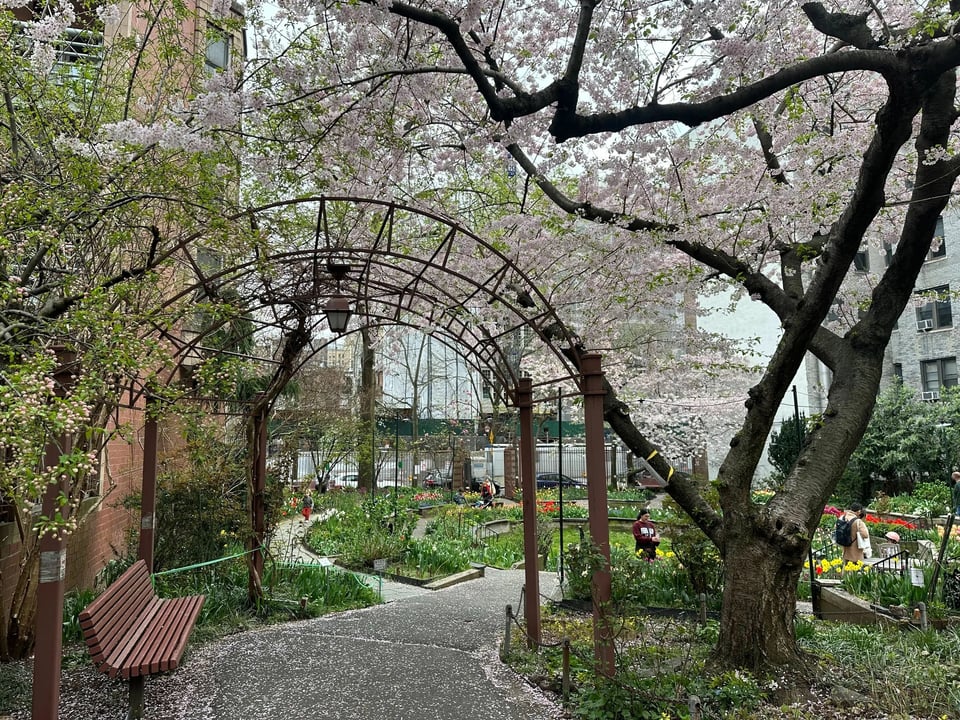
Enter through a wrought iron gate on West 89th Street between Amsterdam and Columbus Avenues to find the secret garden, open daily from dawn 'til dusk. Inside, weave through paths packed with plants. How many exactly? Well, volunteers plant about 13,000 tulip bulbs every year!
You'll see tulips in every color and variety imaginable. Pink, yellow, red, purple and orange tulips—plus a few cool multi-color blooms—fill the garden's raised beds. As for varieties, see if you can spot the differences between parrots, darwins and triumphs—all different types of tulips.
Adding to the scene are pink cherry blossom petals dropping from the trees, the sweet smell of hyacinths in the air and the vibrant pop of color from azaleas.
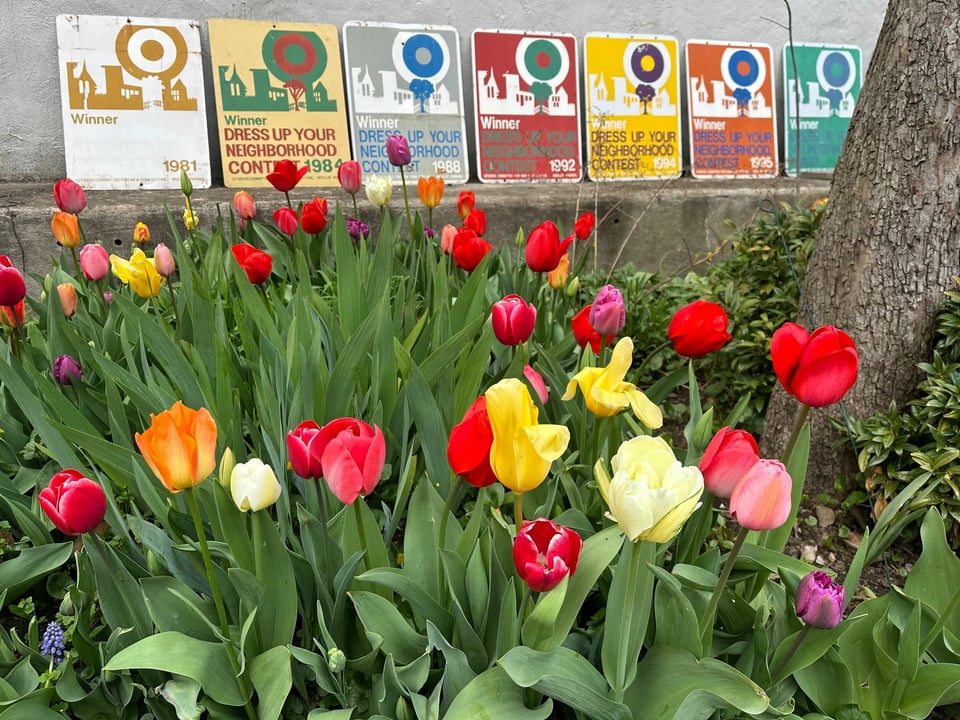
Needless to say, it's all very Instagrammable, but try to take a meditative moment away from your phone to enjoy the seasonal wonder. The garden truly is a magical place, where birdsong replaces honking car horns and the frenetic energy of the city slows down for a bit. Bring a friend, bring a book, grab your journal and find a bench to relax while enjoying all the splendor.
If you want to help keep the garden beautiful year after year, you can make a donation here
Click on the link in the article below 👇 to see cherry blossoms across NYC.
The best places to see cherry blossoms in NYC.

Be dazzled by cherry blossoms in NYC at the Brooklyn Botanic Garden, Central Park, New York Botanic Garden and more spots around town.
Samples below.👇
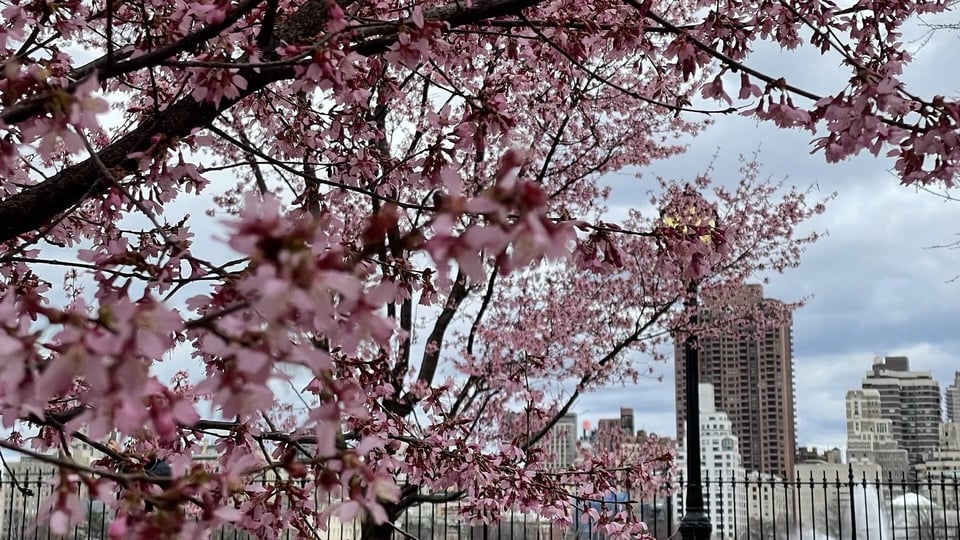
Central Park.
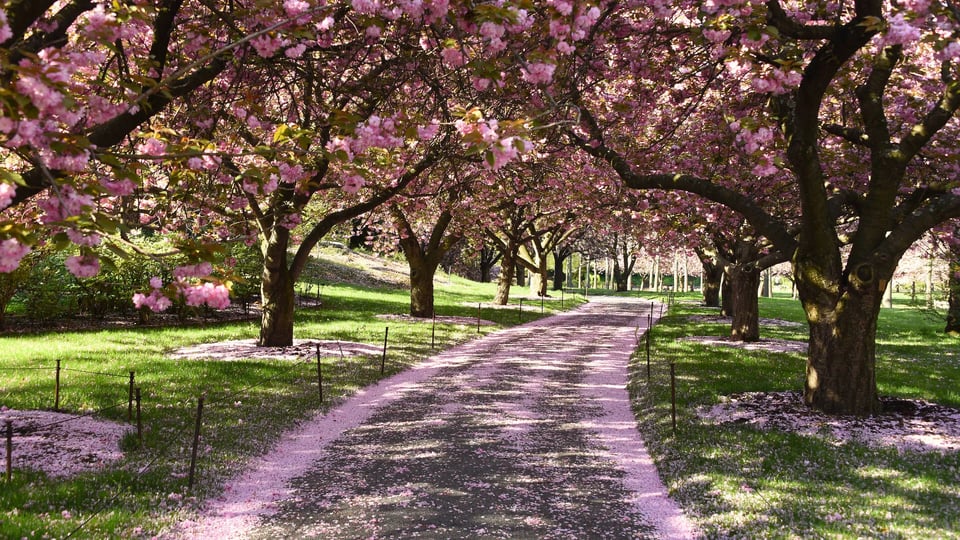
Brooklyn Botanical Gardens.
Enjoy the weekend. See you on Tuesday.